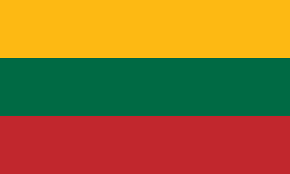The euro entered circulation in Lithuania today, bringing the number of European Union (EU) Member States using the single European currency to 19. “On behalf of the Governing Council of the European Central Bank, I welcome this further enlargement of the euro area. Lithuania has taken exceptional measures in difficult times to reach its goal of joining the single currency,” Mario Draghi, President of the ECB, said.
Lietuvos bankas, the national central bank of Lithuania, becomes a member of the Eurosystem, the central banking system of the euro area, which comprises the ECB and 19 national central banks. Lithuania also joins the Single Supervisory Mechanism, which brings bigger banks under ECB supervision. Three Lithuanian banks (SEB bankas, Swedbank and DNB bankas) fall under the direct supervision of the ECB. They have already undergone the comprehensive assessment, a financial check of 130 banks in the euro area.
Lietuvos bankas has paid the remainder of its contribution to the capital of the ECB and transferred its contribution to the ECB’s foreign reserve assets. The integration of Lithuanian monetary financial institutions (MFIs) into the euro area banking system on 1 January 2015 was already taken into account in the publication of the euro area liquidity needs and the benchmark allotment on 30 December 2014. Lithuanian counterparties of the Eurosystem will be able to participate in ECB open market operations announced after 1 January 2015.
A list of the banks and other MFIs located in Lithuania that are subject to reserve requirements will be published shortly on the ECB’s website, as are the lists of the MFIs located in other EU Member States that have adopted the euro. Provision has also been made for a transitional maintenance period from 1 to 27 January 2015 for the imposition of minimum reserve requirements on Lithuanian MFIs. The assets located in Lithuania that are eligible for use as collateral in the credit operations of the Eurosystem will also be added to the euro area’s list of eligible marketable assets, which is available on the ECB’s website.
Lithuania’s accession to the euro area as its 19th member also means that the new system of rotating voting rights in the ECB Governing Council comes into force as of today.



